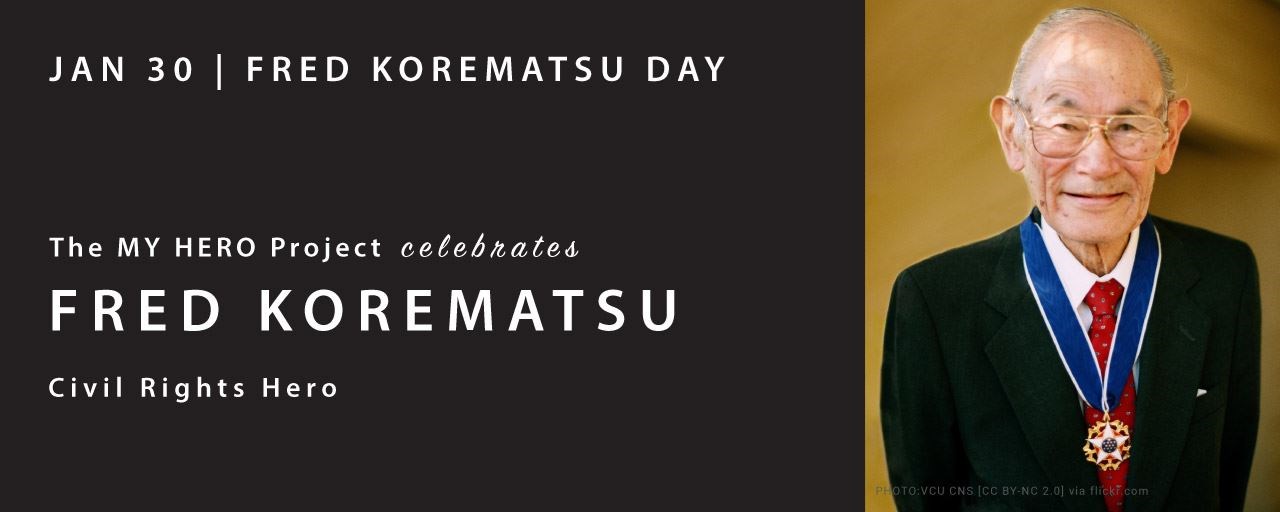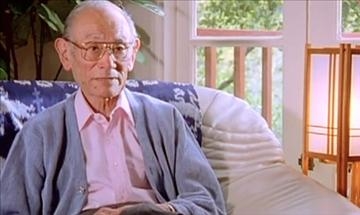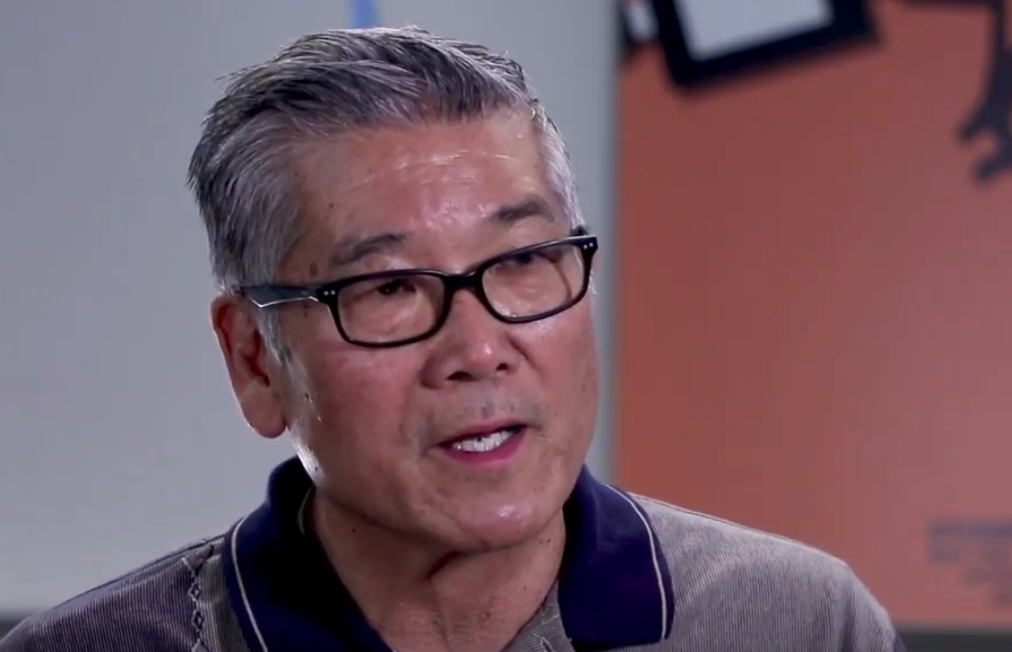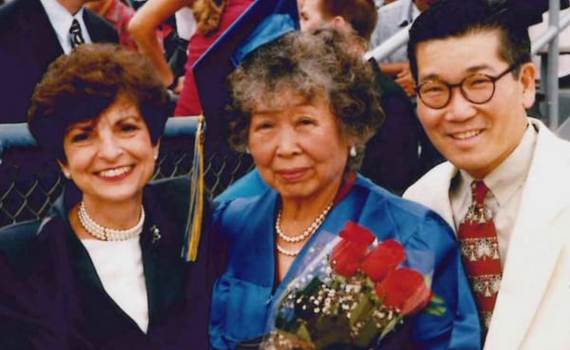

Films about the Japanese internment from MY HERO International Film Fest Winners


Fred Korematsu was born in Oakland, CA. His parents were immigrants and he and his brothers helped their parents run a nursery.
After the US entered World War II, Fred was fired from his job as a foreman on the docks because he was of Japanese descent.
Japan bombed Pearl Harbor in Hawaii on December 7, 1941. This led to President Franklin Delano Roosevelt signing Executive Order 9066. This allowed the US military to move over 120,000 Japanese Americans into interment camps, or prison camps.
He refused to go, and was arrested. While he was in jail, he was visited by a lawyer for the American Civil Liberties Union who asked if he would like to challenge the constitutionality of the the internment camps. He was convicted, and sent to an interment camp with his family. However, he appealed the ruling, which ended up in the Supreme Court.
In an infamous decision, the Supreme Court ruled against Fred Korematsu. The argument was that the Executive Order was not based on racial discrimination but military necessity.
After the war, Fred got married and moved to San Francisco, but his life was affected because of his criminal conviction.
In 1983, researchers found that evidence from intelligence agencies, which showed Japanese Americans had not done anything wrong, had been suppressed in the Supreme Court case. The case was re-opened and his criminal conviction was overturned. However, the Supreme Court ruling still stood.
After his pardon, Fred continued to work as an activist. He fought to have President Reagan sign a bill for reparations ($20,000 to the surviving Japanese-Americans who had been interned) into law.
In 1998, President Bill Clinton awarded him the Presidential Medla of Honor, the highest civilian honor. Fred continued to fight for Muslim prisoners in Guantanamo Bay, and other unlawfully detained until he passed away at the age of 86.
"In 2010, the Governor of California signed the legislative bill establishing Fred Korematsu Day of Civil Liberties and the Constitution on January 30 in perpetuity. This is the first state-wide day in U.S. history named after an Asian American. Korematsu’s growing legacy continues to inspire people across diverse communities and demonstrates the importance of speaking up to fight injustice." - Korematsu Institute
Organizer created on 1/22/2018 5:22:39 PM by Xenia Shin
Last edited 12/14/2022 9:57:02 AM by Abigail Richardson